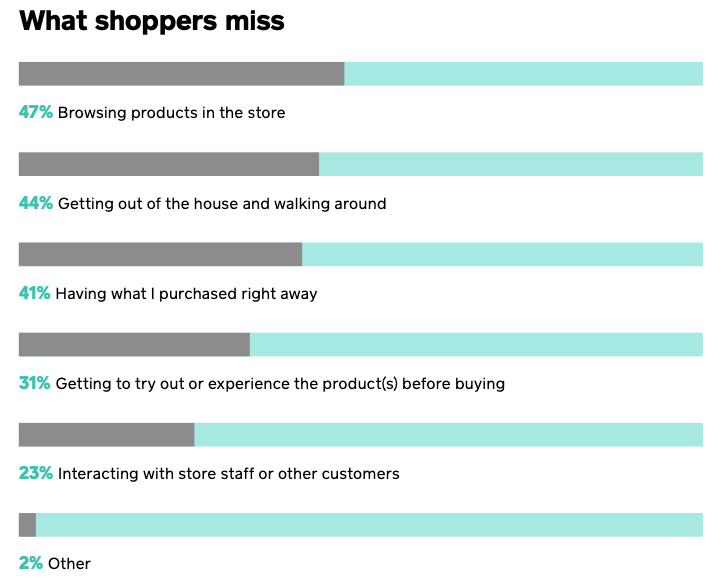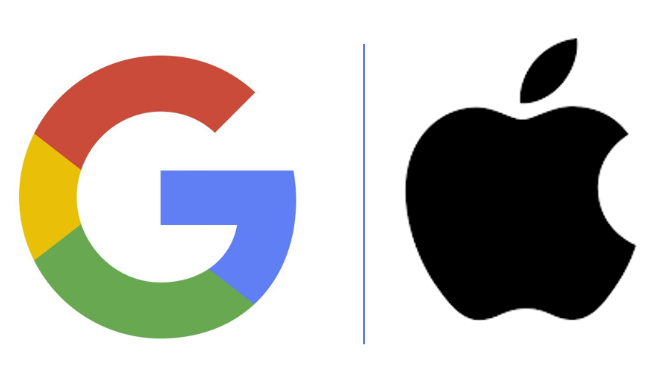FB Whistleblower, Stores Forever, Apple and Google As Internet Enforcers

Facebook Whistleblower: 'Profits over People'
You probably saw or read about the CBS 60 Minutes "Facebook Whistleblower" segment last night. The former employee who provided documents to the Wall Street Journal and is scheduled to testify before the Senate, is Frances Haugen. Recruited in 2018, she was a member of the "Civic Integrity Team" and became increasingly disillusioned by Facebook's practice of "putting profits over public safety." She left the company in 2021. Before she did she collected a trove of documents, intending to expose the company's bad behavior. There's nothing in the interview that would surprise you, but it's still sobering to hear Haugen confirm everyone's worst fears. Haugen says she has a lot of "empathy for Mark." She adds, "Mark has never set out to make a hateful platform but he has allowed choices to be made" that have caused it to become one.
Our take:
- Haugen: Facebook's algorithm "rewards engagement." Angry content generates more engagement, which generates more revenue.
- Haugen filed a whistleblower complaint with the SEC that alleges Facebook mislead investors with its public statements.
- There's an argument to be made that Facebook's bad behavior is simply a logical response to the incentives in the market.
E-commerce Can't Replace Stores
We're heading into another unpredictable holiday season, with potential shortages and earlier promotions. E-commerce saw massive growth during 2020. Yet it currently stands at ~13% of retail in the US (~30% in the UK) – because stores have reopened. Expect it to spike again during holiday shopping, but e-commerce literally can't replace stores. As the Square Future of Retail report (Q1 2021) points out, more than 90% of consumers enjoy in-store shopping. It satisfies various needs: browsing products, shopping as a destination, immediate gratification, try before you buy, human interaction. The report also argues SMB retailers can successfully compete with larger/online-only merchants with same-day delivery, social selling and real-time online inventory. It finds that 84% of merchants already do social selling or plan to this year (this is probably mostly aspirational). Next-gen shopping includes livestreaming, AR and 3D experiences, to bring the in-store experience online.

Our take:
- While the store experience is central to shopping, growth for traditional merchants is now dependent on digital capabilities and visibility.
- Ironically it's the opposite for DTC brands that have gone offlline (e.g., Warby Parker), which have aggressive plans to open more stores.
- Regardless of where you start, merchants must be able to deliver a multi-channel shopping experience, which includes online discovery, social selling and O2O convenience.
Apple, Google: De Facto Internet Regulators
American and European regulators seem to be perpetually debating how to rein in "big tech." Lawmakers have proposed new antitrust rules and called for more regulations. Yet there are serious questions about whether anything will pass Congress and whether what passes will have unintended consequences. For its part, the EU has imposed billions in fines, seemingly without effect. What is having an impact, however, is operating-system policies. The clearest example is Apple's opt-in AppTrackingTransparency, which requires opt-in consent to be tracked. In the context of child safety, a suggestion by former Facebook security chief Alex Stamos would use the operating systems (iOS, Android) to enforce app age restrictions. As the suggestion implies, Google and Apple have unequalled control over developers and their behavior. Their enforcement mechanism is banning offenders from app stores.

Our take:
- Flaw in the theory: Age-gating using the OS could be defeated by entering a false age during setup.
- But the broader point is that the operating systems may be a more efficient way to gain developer compliance with desired policies.
- It's hard to argue that Google and Apple aren't the de facto "regulators" of the mobile internet. But that itself is an antitrust problem.
Recent Analysis
- Near Memo episode 35: Google enhances Lens for image-based commerce, Yelp's restaurant SaaS, Amazon and Facebook stymied by consumer privacy.
Short Takes
- More than 90% of the world went online on mobile in 2020.
- Salesforce announces San Francisco SMB Grants program.
- Google Address Maker creates address in places without them.
- Snap: More than 200M global users "engaging" with AR daily.
- Retail bankruptcies in the US almost non-existent right now.
- Facebook enables group chats across Instagram and Messenger.
- US-EU Trade and Technology Council seeks to coordinate tech policy.
- Shortages hitting SMBs and likely to last through holiday 2021.
- "Twitter paid ad experience for small businesses was very unpleasant."
- Amazon now lets people send physical gifts without a delivery address.
- Amazon introducing "Black Friday" deals already.
- Online used-car dealerships thriving amid the pandemic.
- Restaurants seek to make street-side dining permanent.
- Comedy (or not): Amazon's Astro robot is here to terrorize your pet.
Listen to our latest podcast.

How can we make this better? Email us with suggestions and recommendations.

